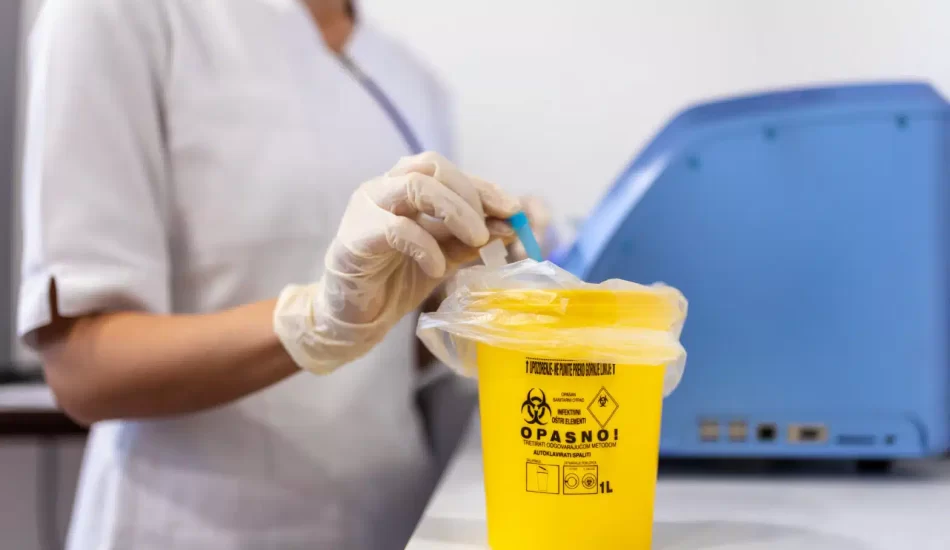Serving Clients Nationwide.
Schedule A Consultation
Pharmacy Compliance with CalRecycle Pharmaceutical and Sharps Stewardship Program

California requires pharmacies, wholesalers, and manufacturers to comply with regulations that facilitate consumer disposal of pharmaceutical and home-generated sharps waste. The program, administered through CalRecycle, requires manufacturers and wholesalers to identify themselves and their products and to engage with approved stewardship organizations to implement disposal programs. Although the bulk of responsibility lies with wholesalers and manufacturers, retail pharmacies must also comply with several regulations. Unfortunately, vague regulations and budding but aggressive enforcement operations have left many pharmacies in the dark and at risk. It is only a matter of time before your pharmacy is inspected. Are you ready?
Recently, the California Environmental Protection Agency (EPA) has begun inspecting pharmacy compliance and issuing Notices of Violation (NOV), which include threats of $50,000 per day civil penalties. Confusion about the role that retail pharmacies play in the program abounds. If the EPA has inspected your pharmacy and issued a NOV, it is important that you consult with experienced pharmacy law attorneys and provide a robust response. Boesen & Snow has assisted pharmacies with achieving and documenting compliance. If your pharmacy has received a NOV or you want to avoid that risk, contact Boesen & Snow today for a free initial consultation.
What are “Covered Drugs” and What Must Pharmacies That Sell Them Do?
CalRecycle’s regulations apply only to a “covered drug.” Under Cal. Pub. Res. Code § 42030(e)(1), a “Covered drug” is a brand name or generic drug “dispensed in the State of California in any form, including prescription and nonprescription drugs that the FDA has approved under Section 505 of the FDCA (21 U.S.C. Sec. 355)” (items with “Drug Facts”), drugs marketed pursuant to an over-the-counter drug monograph, and drugs in or combined with a medical device, among other less common items.
Under this definition, for over-the-counter products, the rule of thumb is generally whether the product includes Drug Facts. If it does, then it falls under Section 505 of the FDCA and is a “covered drug” under CalRecycle’s regulations.
Under Cal. Pub. Res. Code § 42030(2) “Covered drug” does not include vitamins or supplements, herbal and homeopathic products, cosmetics, soap, household cleaning products (including bleach), shampoos, sunscreens, toothpaste, lip balm, antiperspirants, personal care products, and other less common items. Conversely, the rule of thumb for these exempt products is that they lack Drug Facts and may instead include only “Supplement Facts.”
In certain cases, however, determining whether an item is a covered product may be irrelevant, because under Section 42035(c), retail pharmacies are required to only confirm that a product’s manufacturer or distributor is listed not every drug product the pharmacy sells.
The law also requires pharmacies to document compliance measures and to retain all required documents for at least three years.
Come into Compliance Now
The bad news is that the vague regulations and the EPA’s inspections and threats of massive penalties will rattle pharmacies. The good news is compliance is readily attainable and sustainable. Boesen & Snow has also helped manufacturers and wholesalers navigate the program’s more complex and onerous requirements. Contact Boesen & Snow today to discuss your CalRecycle questions.
Schedule a Free Consultation
Fields marked with an * are required

